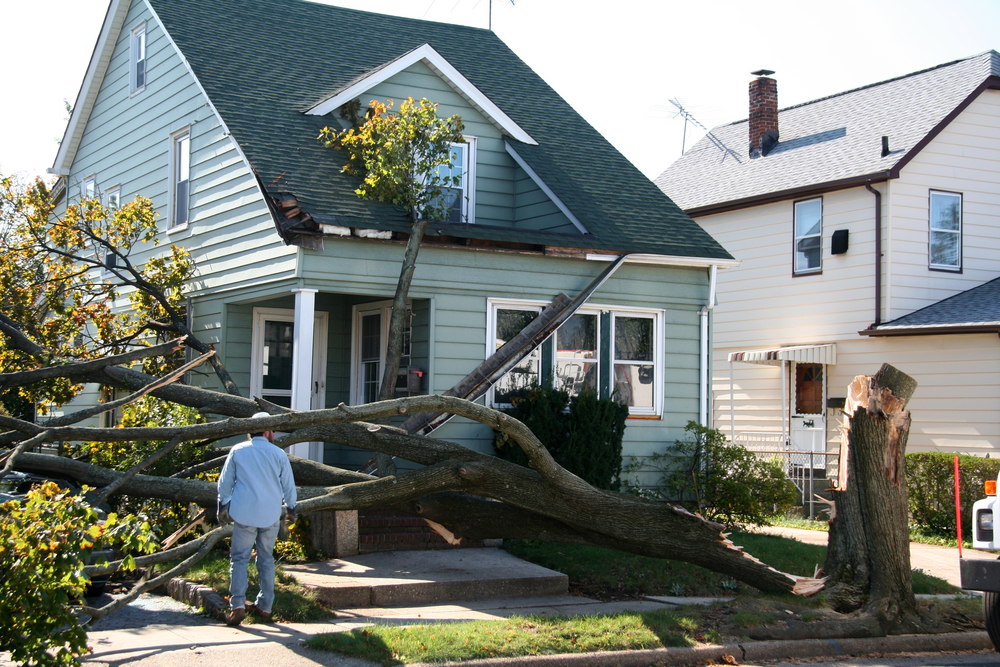High Winds and Tornadoes: Don’t Get Blown Away with Bad Insurance
Natural disasters are scary prospects, both in terms of loss of life and property damage. Thankfully, in most cases, you can depend on your home to protect you from the elements associated with a damaging natural disaster. What protects your home, though, from a common natural disaster like a tornado or severe thunderstorm? In short, comprehensive homeowners' coverage—based on the type of severe weather of which your area is suspect—can help protect your home in the event of a storm. Here is some more valuable information about homeowners insurance as it relates to storm damage:
Does Homeowners Insurance Cover Weather Damage?
In most cases, yes. However, there are some exceptions. This is based largely on the location of your home and how your policy is written, what is covered. Here are some common factors to remember about homeowners insurance and weather-related storm damage:
What it Does Cover: In most cases, comprehensive coverage will cover storm damage that results in ice or water damage. Policies will usually also cover power surges, damage from fallen trees, hail, wind or lightning strikes.
What It Doesn’t Cover: In many cases, comprehensive homeowners' insurance will not cover earthquake or flood damage. This type of damage needs to be addressed via a separate policy that outlines coverage associated with just those particular natural disasters.
Types of Damage
There are many types of weather-related damage that can negatively impact your home. Make sure your homeowners’ plan includes as many types of damage as possible to ensure you have the widest coverage you can under your policy. Some of the most common types of damage associated with severe weather or even bad weather include the following varieties:
- Roof damage
- Sewer back-up
- Ice dams
- Power failure
- Frozen pipes
- Fallen trees
- Flooding
- Water damage
- Wind damage
- Hail damage
Weather-Related Liability
There is also a risk to you if you fail to maintain your property, even if the maintenance issues are from bad weather, like fallen branches. Therefore, it’s important for you to keep your property well maintained. Sweep up walkways, ensuring there are no hazards. Try to do preventative maintenance as well, removing dead limbs that could fall from trees or having unsafe trees taken down. This can help you avoid potential claims down the road. Even though your homeowners will cover this type of liability case, you don’t want to have to go through the hassle if you can prevent it by cleaning up your property and ensuring there aren’t obvious hazards waiting to happen.
Tips For Making Weather-Related Claims
If the worst happens and your home is damaged in bad weather, don’t panic. If you have homeowners coverage and the right kind of policies, your home is likely well-protected. Here are some tips to keep in mind immediately after your home has suffered damage from a storm:
- Make claims as soon as possible: Call your insurance company as soon as possible once you are safe after a natural disaster. They need to know what type of claim you will be filing and get the ball rolling for you as quickly as possible to get your home restored to its previous state.
- Take photos of the damage: While it might not be the first thought that pops into your mind, it’s important to get plenty of photos of the damage. If a tree is through your garage, make sure you take photos and show everything that was damaged in said photos. This will help you down the road when you are summarizing what was lost or damaged during the storm. You might think you will remember everything, but you will forget as time goes by.
- Keep your coverage updated: If you add on to your property or improve it any way, make sure that your coverage reflects those improvements. Always make sure your coverage is adequate for your property.
Bottom Line: You Need the Right Coverage
It’s important to keep your home safe, this is even more important when a storm damages the inside or outside of your home. Make sure you’re covered in the event of a dangerous storm. This will ensure you won’t go bankrupt simply trying to repairs damages your home sustained during a storm.



